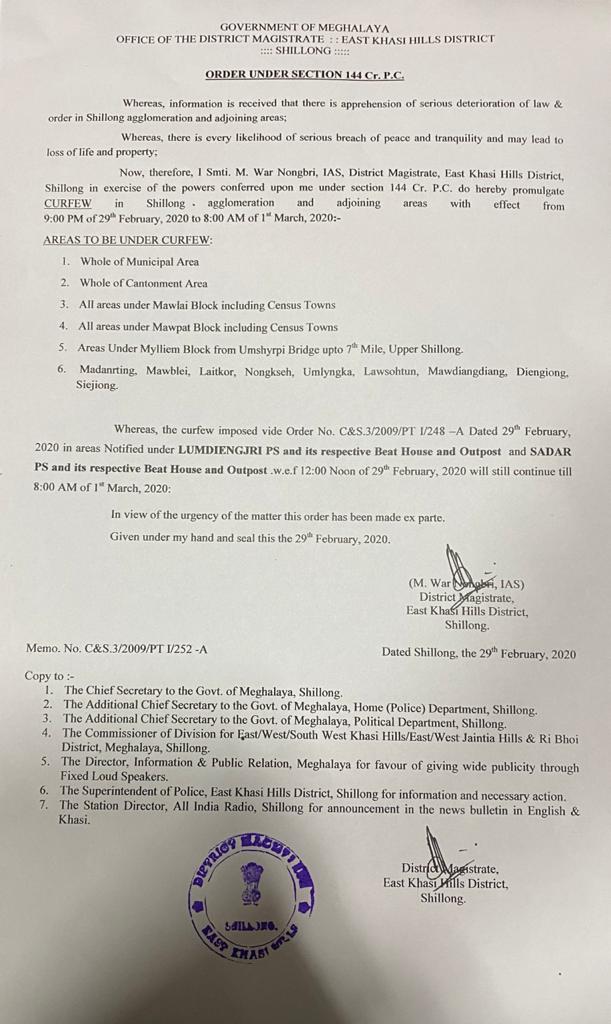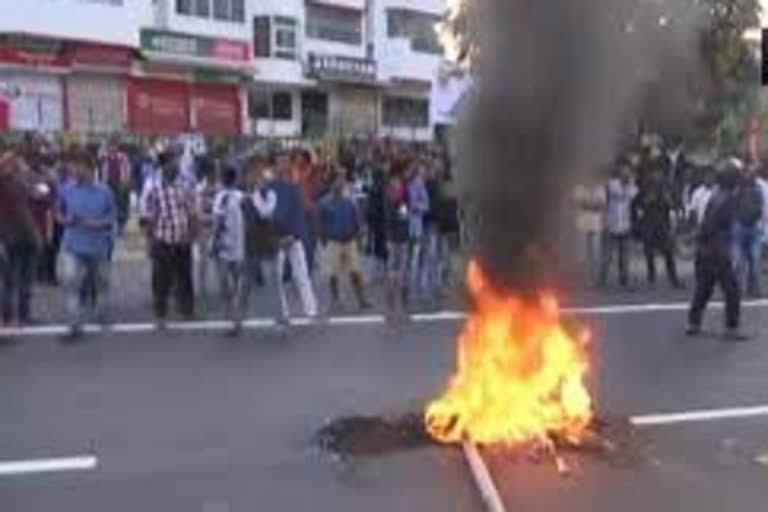New Delhi: With the memory of bloodshed that rocked the national capital early this week still too fresh to ebb away, the spiral of communal violence due to the controversial Citizenship Amendment Act (CAA) spread to new territories more than 2,200 km away very near the India-Bangladesh border in Meghalaya.
While one person died on Friday, another life was lost in a Shillong market on Saturday. This was the second killing after one Khasi Student Union (KSU) activist was beaten to death at Ichamati, very near to the India-Bangladesh border and about 70 km south of Shillong, on Friday.

The KSU team had gone to Ichamati to undertake an awareness drive to impress people against the CAA and on the demand for implementing the Inner Line Permit (ILP) system for Meghalaya.
Speaking on Saturday’s violence, a person familiar with the development, told ETV Bharat on the phone from Shillong: “A few people came to a market place and randomly stabbed about five people in a deliberate act of violence. One of the persons succumbed to his injuries at the Shillong civil hospital while four others are injured. There is a strong possibility of more violence.”
Apprehending large-scale violence, the administration has imposed curfew in large parts of the city on Saturday.
Eighty-two days after the controversial amendment to the citizenship act was approved in parliament, the implications continue to haunt new areas.
Read: Delhi violence: Fate of 1222 students at stake as school burnt
Early this week, sudden and vicious violence that started with opposing positions on CAA had engulfed northeast Delhi, claiming at least 42 lives and injuring hundreds besides causing widespread destruction of property. It had coincided with the visit of US President Donald Trump to the city.
CAA fast-tracks Indian citizenship for non-Muslims who arrived in India from Bangladesh, Afghanistan, and Pakistan on or before December 31, 2014.
While there have been country-wide protests against the CAA in mainland India as being discriminatory to Muslims and of violating constitutional tenets of secularism, the focus of the protests across the seven northeastern has been on demands to protect and safeguarding the rights and culture of the indigenous people of the region.
In particular, Bangladeshi-origin people—both Hindus and Muslims—are alleged to have entered and settled down in the northeastern states even after the formation of Bangladesh in 1971, vastly altering the demography of the states occupied by ethnic tribes and communities.
The perceived fear of the indigenous people is buttressed by developments in Tripura where the indigenous tribal people are believed to have been rendered to a small minority now mainly due to migration from nearby Bangladesh.
Also Read: Death toll in Shillong rises to 2, curfew re-imposed




